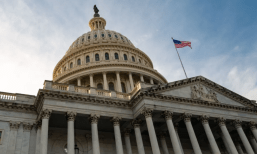Richemont Aims to Avoid Price Backlash Seen in Luxury Sector

Luxury group Richemont will reportedly continue to limit its price increases, even in the face of new U.S. tariffs.
The owner of Cartier and other luxury brands has benefited from being more restrained in its price increases than some of its rivals over the past four years, as some of those competitors have seen a customer backlash over prices, the Financial Times (FT) reported Friday (May 16), citing Richemont Chair Johann Rupert.
“We will not make sudden rapid price increases,” Rupert said, per the report.
Some of Richemont’s rivals in the luxury sector have announced price increases in the U.S. to offset the effect of tariffs, after already making high-double-digit price increases over the past five years, according to the report.
Richemont’s own Van Cleef and Cartier brands have also increased prices on some products, per the report.
Jean-Philippe Bertschy, head of Swiss equity research at Vontobel, told the FT that Cartier is “clearly a standout” at a time when rival brands are seeing softness in demand.
Luxury goods retailer LVMH Moët Hennessy Louis Vuitton said April 14 that it was prepared to increase prices on its products and take other mitigation strategies if tariff talks fail.
During the retailer’s quarterly earnings call, LVMH Chief Financial Officer Cécile Cabanis said it could launch a mitigation strategy of which “price increase is one part.”
Cabanis said the firm’s luxury goods have more pricing power, since well-heeled customers are not budget conscious, though stock market declines have collectively wiped out trillions in net worth.
LVMH also owns non-luxury retail stores such as Sephora, where customers could be more sensitive to price.
Even before new tariffs were imposed, it was reported that the luxury market was undergoing a period of mixed results and shifting dynamics, with high-value consumers seeking greater value and quality in their luxury purchases.
Amid larger economic pressures, such as inflation and geopolitical instability, consumer confidence and spending habits were changing and the luxury market was becoming unpredictable.
Analysts expect minimal growth for the luxury sector until at least 2027, although Japan, the Middle East and India are projected to see expansion this year.



